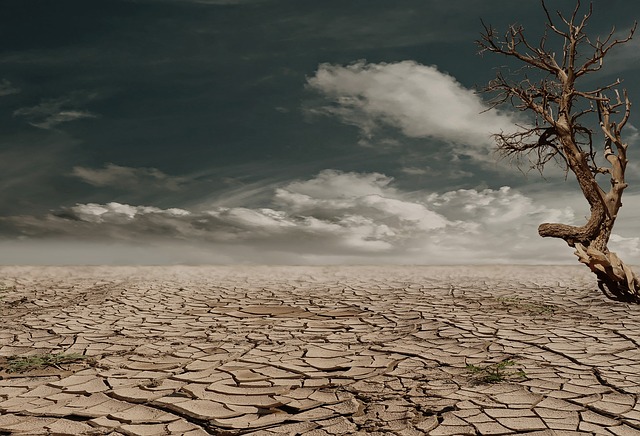
Heat waves will be more common in the future unless global warming is reined in sharply. This is what the European Commission’s Joint Research Centre (JRC) says in its study published in Scientific Reports. By analyzing temperature and humidity data of heat waves that have occurred since 1979, the research body described scenarios that could lead to lethal heatwaves in the future.
As we all know, temperatures measure how hot or cold an area is. However, this alone is not enough to fully describe an area’s condition as humidity is often underestimated when discussing extreme weather phenomena. Humidity, or the dampness of air, is usually gauged as relative humidity (RH). A 100% RH means the air is too damp it cannot hold more water (which could possibly lead to raining) while the ideal 0% RH state means the air is very dry.
Humans are sensitive to humidity. Take the case of two equally warm environments, one with high relative humidity and the other with low relative humidity. If a person sweats, the perspiration must evaporate to remove heat from his/her body. This is going to be hard in high RH and the person will feel hotter. On the other hand, at low RH, evaporation will be easier and the person will feel refreshed.
Generally, humans are comfortable at 45% RH level. The combination of temperature and humidity, referred to as heat index (HI) or apparent temperature (AT), presents a better picture of an area’s condition. A high HI is associated with incidences of heat-related health conditions (like heat cramps, heat exhaustion, heat strokes) and high mortality rates.
The JRC study was born out of a collection of data of heat waves that occurred since 1979 and researchers came up with two scenarios. First, if global temperature increments by up to 2°C above pre-industrial levels (the period before 1850-1900), the heat index will likely exceed 40°C every year in Asia, Australia, North Africa, South and North America, with Europe to be least affected. Second, if global temperature increments by up to 4°C, the heat index could reach to a dangerous 55°C/130F or more per year. This could cause regular heat waves hitting the east coast in the US, coastal China, large parts of India, and South America, with Europe also getting its share. Currently, global temperatures have already risen by 1°C above pre-industrial levels, with 2015 and 2016 as two of the warmest years on record.
Heat waves are dangerous phenomena. A heat wave has no standard definition but, according to the Glossary of Meteorology, it is “a spell of three or more days on each of which the maximum shade temperature reaches or exceeds 90°F” (or 32.2°C). Some of the deadliest heat waves include the 1995 Chicago heat wave that killed more than 700 people, the 2003 European heat wave that killed around 70,000, the 2010 Moscow heat wave where more than 10,000 died, and the 2015 heat wave in South Asia with 3,500 deaths. The study warned that unless the upward trend of global warming is halted, heat waves will be more frequent and more severe in the future.
While some urban areas are predicted to be least vulnerable to heat waves, the study is not implying they will be saved from other extreme weather conditions brought by high humidity (for example, typhoons). In the end, governments are urged to not only curb global warming but also mitigate the impact of heat waves and other extreme phenomena.
Disclaimer: This page contains affiliate links. If you choose to make a purchase after clicking a link, we may receive a commission at no additional cost to you. Thank you for your support!




Leave a Reply